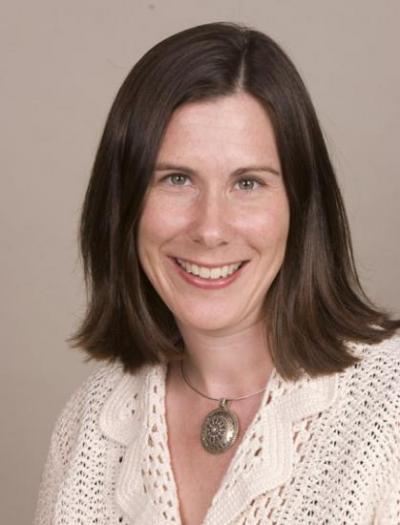PROVIDENCE, R.I. [Brown University] — Last July, President Obama adopted the recommendations of a White House task force charged with devising a policy to better manage the nation's oceans, coastlines and the Great Lakes. The National Ocean Council is now charged with developing a plan to put the ideas into practice. Two scientists at Brown University will speak about the ecological and social facets of marine management this month at the annual meeting of the American Association for the Advancement of Science in Washington, D.C.
Heather LeslieSharpe Assistant Professor of Environmental Studies and BiologyDepartment of Ecology and Evolutionary Biology, Brown University
"Marine Spatial Planning Through the Lens of Ecological Resilience"Land and Oceans symposium, Friday, Feb. 18, 2011, from 8:30 to 11:30 a.m.Washington Convention Center, Room 140A
Leslie, a marine ecologist, will talk about how ocean ecosystems vary in space and time and will explain how knowledge of ecosystem resilience to such variability can be used to better manage the ocean, particularly in the face of climate change.
"We need to understand the ocean is not just one Big Blue," said Leslie, who also has an appointment at Brown University's Center for Environmental Studies. "It's as if you're walking through a forest; you see a bunch of different tree species, a variety of habitats. You also find that variety of habitats in the ocean, and we need to identify those places that are more susceptible to human use and those that are better able to withstand human use."
Likewise, productivity in the ocean (such as fish stocks) ebbs and flows over time, Leslie said. Changes in climate, even periodic shifts such as El Niños, can influence the productivity in different places in the ocean. "You need to have that context when, for example, you think about where are you going to have people fish or locate their wind farms," she said.
Leslie is an expert on ecosystem-based management, which calls for a holistic approach to managing marine environments. That approach involves all parties and takes into account all aspects of the ecosystem, from its varied terrain to its vulnerability to climate change. She has advised the President's Interagency Ocean Policy Task Force and has been invited to brief partners of the National Ocean Council while at the AAAS meeting. She is the author of Ecosystem-Based Management for the Oceans, published by Island Press.

Heather Leslie is the Sharpe Assistant Professor of Environmental Studies and Biology in theDepartment of Ecology and Evolutionary Biology, Brown University.
(Photo Credit: Brown University)
Leila Sievanen, Brown UniversityPostdoctoral Research AssociateCenter for Environmental Studies, Brown University
"Including Humans: Practitioners' Views on Social Science in Ecosystem–Based Management"Land and Oceans symposium, Sunday, Feb. 20, 2011, from 1:30 to 4:30 p.m.Washington Convention Center, Room 140A
Sievanen, an environmental anthropologist, will talk about the need to include certain constituencies, such as the fishing community, in ocean conservation and management practices. She will also offer instructive lessons gained from interviewing more than five dozen coastal residents in the Gulf of California, the central California coast, and the Western Pacific islands of Fiji and Palau.
Sievanen's central message, based on her fieldwork, is that the social sciences must be included in discussions on successfully managing the oceans.
"We need to think about the fishermen catching the fish or the coastal residents whose sewer systems empty into the bay," said Sievanen, a postdoctoral researcher in Leslie's group. "The ocean isn't just a biophysical space. It's also about the people living there, and I think we need social scientists who can understand human behavior.. It's also about the people living there, and I think we need sociologists who can understand human behavior."
One such example was in Morro Bay, Calif., where the local fishing industry has been in steep decline. Through her interviews, Sievanen learned the importance of engaging fishermen in the discussions. She advocates that fishermen, because of their first-hand knowledge of the bay, should participate in the research.
"It's not just making them scientists," she said. "It's making scientists more aware of fishermen's knowledge."

Leila Sievanen is a postdoctoral research associate at theCenter for Environmental Studies, Brown University.
(Photo Credit: Mike Cohea, Brown University)
Source: Brown University